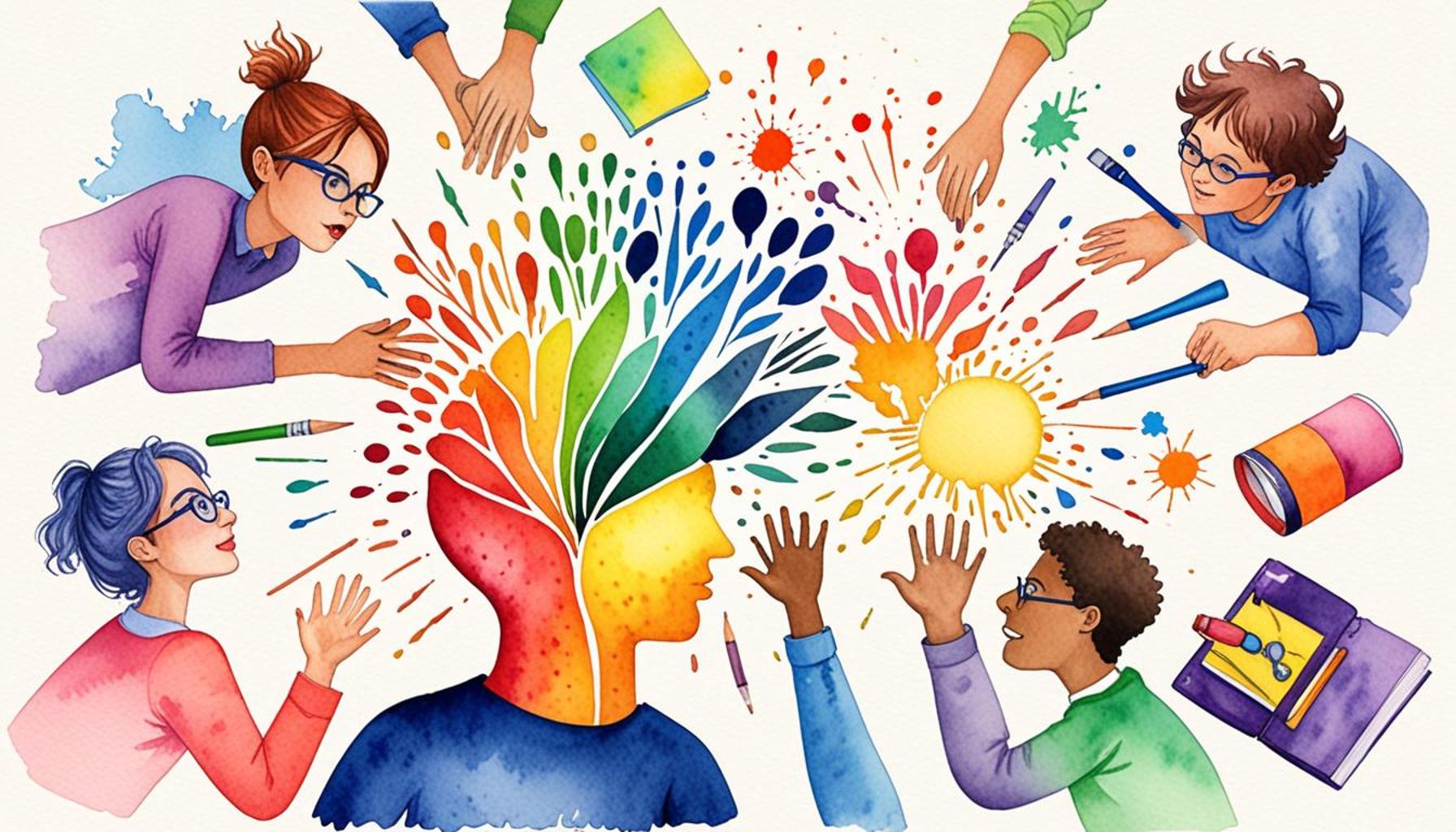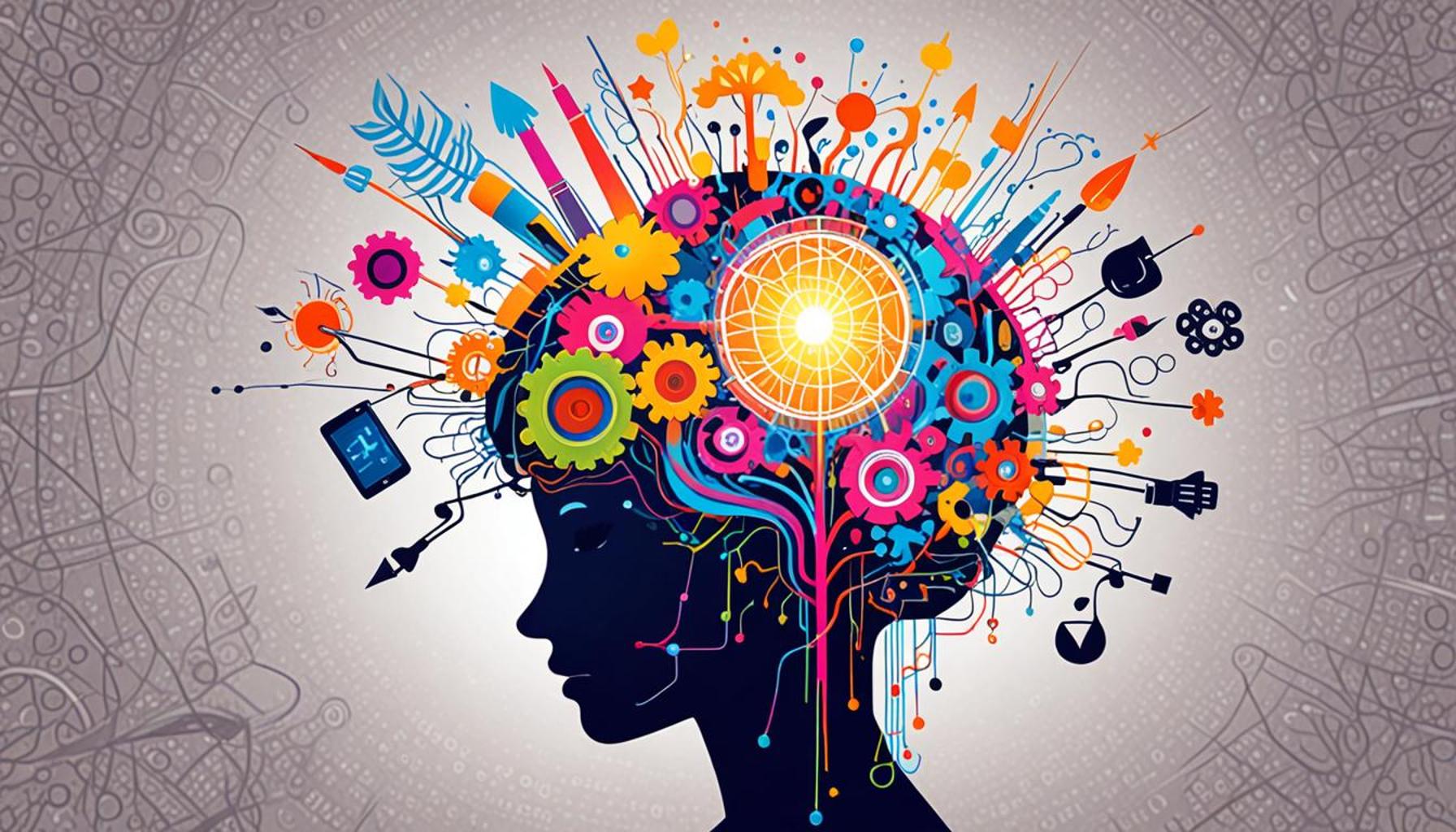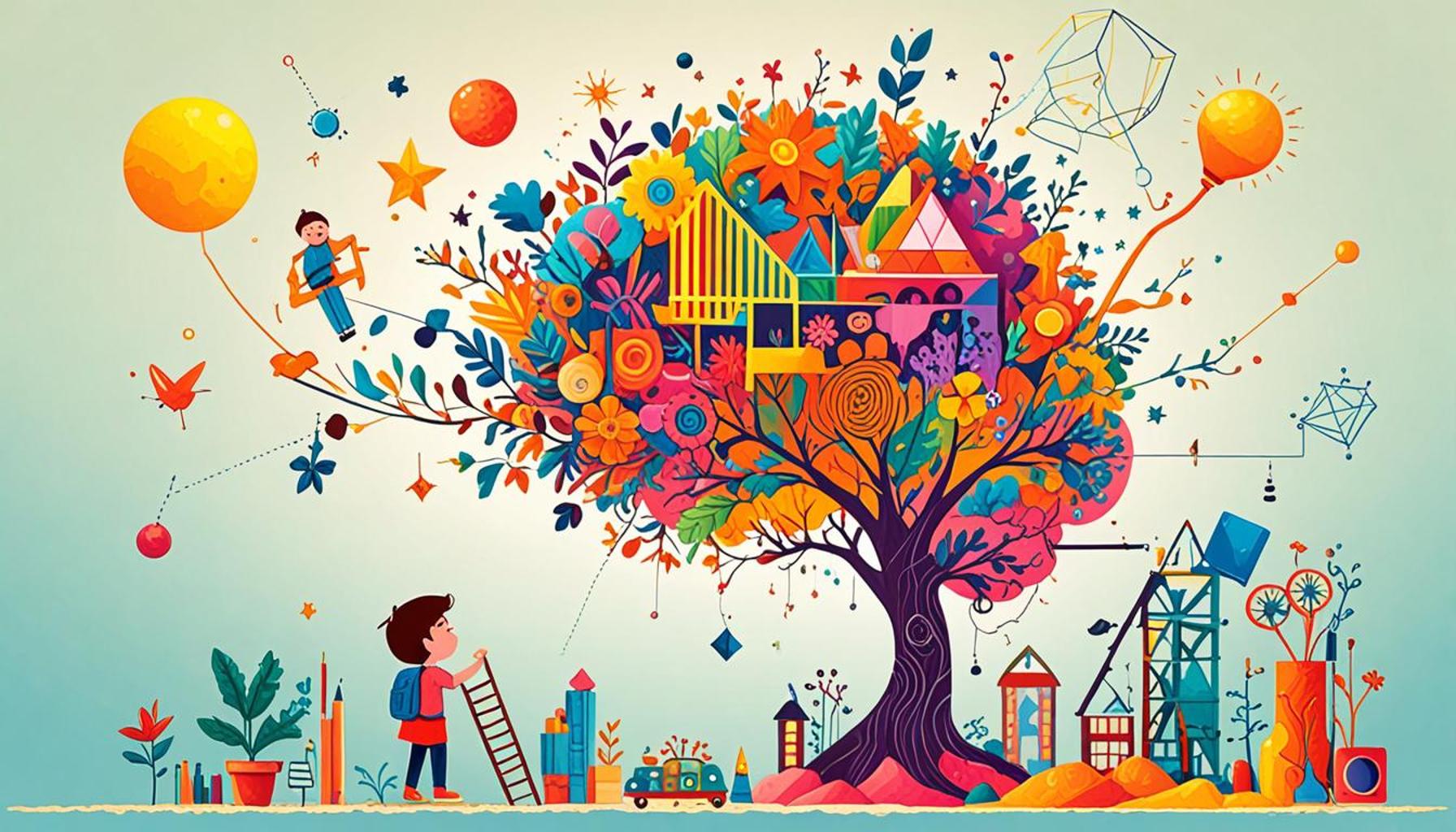Group Learning Strategies: Strengthening Collaboration and Growth Mindset

The Impact of Group Learning Strategies
In an era where education is evolving beyond traditional classroom boundaries, group learning strategies have proven to be essential not just for improving academic performance, but also for preparing students for real-world challenges. By fostering an environment that encourages collaboration, these strategies unveil numerous benefits that can significantly enhance the learning experience.
One of the most significant advantages is enhanced collaboration. When students work together in groups, they engage in meaningful discussions, share insights, and learn from one another’s experiences. For instance, in a Nigerian classroom, students might collaborate on a project that addresses local agricultural challenges. By pooling their varied knowledge on sustainable practices, they can devise innovative solutions, deepening their understanding while simultaneously learning essential teamwork skills.
Another key benefit is the exposure to diverse perspectives. Nigeria, being a multicultural society with over 250 ethnic groups, offers a unique opportunity for students to encounter a multitude of viewpoints. When students engage in group learning, they are not just exchanging ideas; they are also developing critical thinking skills as they analyze and synthesize different opinions. For example, a group discussion on health issues affecting various regions of Nigeria could unveil various cultural approaches to health and wellness, encouraging a holistic view of societal challenges.
Additionally, participating in group activities equips students with the ability to adapt. With the world constantly changing, learning to collaborate effectively is crucial. Group settings expose individuals to a variety of communication styles and conflict-resolution strategies. Consider a scenario where a group project requires a presentation on entrepreneurship. Students must learn to negotiate roles, address unforeseen challenges, and adapt their strategies in real-time, thereby preparing them for unpredictable situations in professional environments.
The focus on cultivating a growth mindset within group settings is vital as well. Instead of prioritizing individual achievements, students learn the value of collective improvement. This approach encourages students to embrace challenges and view failures as opportunities for growth. In Nigeria’s educational context, where resources may be limited, nurturing a growth mindset through collaboration inspires resilience and promotes a culture of continuous learning.
As we delve into effective group learning strategies, it is important to explore how practical applications can transform the educational landscape. Initiatives such as peer-led study groups, community-based projects, or collaborative online platforms can further enhance this approach. Ultimately, the journey towards a more engaged, inclusive, and effective educational experience will not only transform students in Nigeria but could serve as a model for educational practices around the globe. Prepare to discover the wealth of opportunities that collaborative education can unlock!
YOU MAY ALSO LIKE: Read read another article
Unlocking Potential Through Collaborative Learning
As educators and students navigate the complexities of modern learning environments, the implementation of group learning strategies becomes increasingly pivotal. These strategies not only foster teamwork but also cultivate a profound sense of community and shared purpose. By harnessing the strengths of each member, groups can create an enriching educational experience that promotes both intellectual and emotional growth.
To effectively harness the power of group learning, it is essential to understand various strategies that can stimulate collaboration. Here are a few impactful methods:
- Peer Teaching: This strategy allows students to take charge of their own learning by teaching their peers. This method not only reinforces the tutor’s understanding but also fosters respect and communication among group members.
- Problem-Based Learning (PBL): PBL places students in real-world situations that require collaborative problem-solving. For example, Nigerian students might work together to devise strategies for overcoming water scarcity in their localities, thereby learning important research and critical thinking skills in the process.
- Role-Playing: By simulating scenarios relevant to their environment, students can better understand diverse perspectives and hone their empathy. This can be particularly relevant in discussions around cultural heritage in Nigeria, where students explore the rich histories of various ethnic groups.
- Group Projects: Undertaking collective projects not only aids in understanding complex subjects but also exposes students to different capabilities within the team, encouraging delegation and responsibility sharing.
Each of these strategies provides an opportunity for students to engage in active learning, a process that emphasizes participation and collaboration. As they work together, they develop essential skills that extend beyond academia, equipping them with tools vital for success in any future workplace. Consider how important it is for students to learn how to communicate effectively, share ideas, and navigate conflicts—skills that become invaluable as they transition into the workforce.
Moreover, implementing these strategies allows educators to observe firsthand how collaborative efforts contribute to a collective growth mindset. Encouraging students to view challenges as learning opportunities fosters resilience. For instance, when a student struggles with a mathematical concept during group work, their peers can offer support, transforming the experience into one of shared triumph over adversity. This communal approach not only combats academic anxiety but also builds lasting bonds among learners.
The cultural context of Nigeria also plays a significant role in how group learning strategies can be effectively utilized. Integrating local issues into group projects not only makes learning relevant but also motivates students to apply their knowledge to solve real-life problems facing their communities. This can range from addressing educational disparities to tackling health issues, such as maternal health care, by collaborating with local healthcare providers.
In summary, the application of group learning strategies is a powerful means of strengthening collaboration and instilling a growth mindset among students. As educators and students continue to engage in these meaningful interactions, they lay the groundwork for a future where collective achievement and resilience are celebrated.
| Advantages | Description |
|---|---|
| Enhanced Communication Skills | Group learning fosters effective communication, enabling individuals to express ideas clearly while also encouraging active listening among peers. |
| Increased Motivation | Collaborative environments foster motivation as participants support each other, driving a collective passion for success and enhancing the growth mindset. |
Group learning strategies not only create a more dynamic atmosphere but also significantly enhance the educational experience by promoting teamwork and collaboration. Under the umbrella of strengthening collaboration, participants learn to navigate diverse perspectives, ultimately enriching their problem-solving capabilities. Furthermore, a focus on enhancing a growth mindset encourages learners to embrace challenges and view failures as opportunities to grow. This approach seamlessly integrates into their daily practices, allowing for a continual cycle of improvement and collaboration. As individuals engage in group settings, they benefit vastly from the diverse skill sets of their peers, which can prove beneficial in various contexts, from academic pursuits to professional tasks. Exploring these strategies in greater depth allows organizations and learners alike to harness the power of collaboration, leading to profound growth and success.
LEARN MORE: This related article may interest you
The Role of Reflection in Group Learning
While engaging in group learning strategies, the significance of reflection cannot be overstated. Reflection is a transformative process that allows students to internalize their group experiences, enhancing both their individual and collective understanding. Encouraging students to take time to assess what they learned from their interactions provides an opportunity to crystallize their insights and recognize areas for improvement.
One effective way to integrate reflection into group work is through structured debriefing sessions. After completing a project or an activity, groups can engage in discussions that focus on the successes and challenges they encountered. These sessions can help students articulate their feelings, share personal experiences, and understand differing perspectives within the team. For instance, following a collaborative project in which they addressed local environmental issues, Nigerian students might reflect on what strategies worked best and how they could improve their teamwork in future endeavors.
Additionally, utilizing learning journals allows students to document their experiences and thoughts over time. This practice encourages self-assessment and continuous improvement, key components of a growth mindset. By revisiting their entries, students can track their progress, reevaluate their goals, and recognize patterns in their learning journey. This is particularly relevant for students in Nigeria, where navigating a multitude of social and educational dynamics can present unique challenges necessitating persistent adaptability.
Moreover, peer feedback is a fundamental aspect of enhancing the group learning experience. When group members provide constructive feedback, it encourages an open dialogue about strengths and weaknesses, ultimately helping learners cultivate a receptive attitude towards critique. Establishing norms around feedback can help mitigate the discomfort often associated with receiving criticism. In this context, Nigerian students can learn to celebrate each other’s successes while also motivating each other to improve, fostering an environment that thrives on collective growth rather than individual competition.
Leveraging Technology to Enhance Collaboration
In our increasingly digital world, incorporating technology into group learning strategies can further augment collaboration and communication. Tools such as Google Docs or Slack facilitate real-time collaboration, allowing students to contribute ideas, provide feedback, and make revisions seamlessly, regardless of their physical location. This accessibility is particularly beneficial for Nigerian students from different geographical areas who may wish to collaborate on projects addressing national issues such as food security or public health campaigns.
Furthermore, online platforms can serve as repositories for group resources, including research materials, articles, and other relevant content that may enrich their understanding of the task at hand. Online forums or discussion boards can also be utilized to extend conversations beyond the classroom, encouraging students to dive deeper into topics and support one another outside formal learning environments. The shift towards a blended learning approach not only accommodates various learning styles but also reinforces the importance of flexibility and adaptability—a hallmark of a strong growth mindset.
Lastly, creating an atmosphere that embraces diversity within groups can significantly enhance this learning process. When students from various backgrounds work together, they bring a rich tapestry of perspectives that can lead to innovative problem-solving. By intentionally forming heterogeneous groups that represent different ethnicities and experiences in Nigeria, educators can capitalize on this diversity, enabling students to learn from one another while simultaneously fostering inclusivity and mutual respect.
ADDITIONAL INSIGHTS: Expand your understanding here
Conclusion
In conclusion, group learning strategies play a pivotal role in fostering a collaborative and inclusive learning environment that is particularly beneficial for students in Nigeria. The integration of techniques such as reflection, constructive feedback, and technology not only enhances student engagement but also nurtures a growth mindset. By embracing reflective practices like debriefing sessions and learning journals, students can deepen their understanding of both content and collaboration, paving the way for individual and collective growth.
The use of digital tools to facilitate teamwork transcends geographical barriers, allowing diverse groups to work on pressing national concerns, such as health initiatives or climate challenges. This digital engagement creates opportunities for students to connect, learn from one another, and apply their insights in real-world contexts. Furthermore, promoting diversity within group dynamics enriches learning and drives innovation, which can significantly impact Nigeria’s educational landscape.
As educators and students alike continue to embrace these strategies, it is essential to remain vigilant in nurturing an atmosphere that values collaboration, critical thinking, and adaptability. By doing so, we can empower the next generation of Nigerian leaders to tackle complex challenges with confidence and creativity. Ultimately, the pursuit of enhanced collaboration through group learning strategies not only prepares students for academic success but also fosters a lifelong love of learning, a vital ingredient in our ever-changing world.



